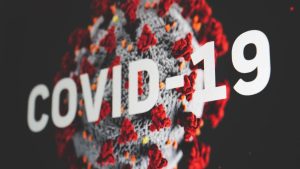Biochemical & sequencing testing combination to be most comprehensive approach to newborn’s proactive health: Madhuri Hedge, Senior Vice President, Revvity
Genome sequencing, a revolutionary scientific advancement, has transformed our understanding of life at its most fundamental level. At its core, genome sequencing involves decoding the complete set of genetic instructions within an organism’s DNA, unraveling the intricacies of its genetic code.
Genome sequencing extends beyond humans, reaching diverse organisms, including plants, animals, and microorganisms. Recent study published in the JAMA Network Open journal has revealed the benefits of sequencing genomes of all newborns.
The use of proactive genomic screening would enable healthcare professionals to uncover a wide range of risks for looming pediatric onset conditions allowing for earlier interventions and personalized treatment plans based on individual genetic make-up.
In an e-mail interaction with Financial Express.com, Madhuri Hedge, Senior Vice President and Chief Scientific Officer, Revvity spoke about how genome sequencing can be used for proactive screening of newborns, feasibility in India, upcoming plans among others. Excerpts:
What is genome sequencing? What is its role in disease diagnosis?
Organisms have genetic codes or genomes made up of nucleotide bases, and sequencing is the process of determining the order of these bases. Genome Sequencing analyzes both coding and non-coding regions of the DNA, which have vital information to fully understand and assess the risk of diseases. It is an unbiased approach that provides an alternative to the disease-centric approach that focuses on specific, well-known clinically relevant genes. It can prove to be instrumental in detecting a range of diseases – such as those caused by point mutations, copy number changes, and repeat expansions. This can support earlier diagnosis and thus prompt quick treatment.
What is the status of genomic diagnosis in newborns, and how is this approach beneficial for proactive newborn screening? How prevalent is this trend in India?
In India, roughly 67,385 babies are born each day. Unfortunately, there are 28 newborn deaths for every 1,000 live births; this infant mortality rate is higher than that in other developed countries. Roughly 5% of newborns require hospitalisation due to genetic disorders, as per the Indian Medical Association. Newborn screening (NBS) is usually sequential, with biochemical analysis performed as first tier of testing followed by gene sequencing as second tier of testing. This combination ofbiochemical and sequencing testing will serve to be the most comprehensive approach to predictive/proactive health for a newborn.
The adoption of whole genome sequencing is still at a nascent stage in India, however, there are multiple initiatives that are attempting to identify population-specific gene changes to aid appropriate and cost-effective diagnosis for rare diseases. Programs like GenomeAsia100K, which have representative samples from India, aim to sequence and analyse individuals’ genomes to enable medical applications. The Indian government has announced a Bioscience Mission for Precision Health and Optimal Well-being, which involves large-scale sequencing of human genomes across the country. Additionally, the Council of Scientific and Industrial Research (CSIR) in India has started a program called “Genomics for Public Health (IndiGen)” which aims to speed up biomedical applications in India by sequencing the entire genomes of people. These population-scale genomics programs will provide a great impetus and framework for advancing rare disease genomics in India.
What are some of the current diagnostic tools for newborns in India? What is the impact of genomics with respect to affordability and accessibility?
NBS is instrumental in early detection and diagnosis of several rare, serious conditions, which, if undetected, can have a significant impact on the quality of life of affected babies. Quick diagnosis can help families promptly consult a doctor and seek treatment, so they can prevent disease progression, disabilities, and more. This can also reduce infant mortality risk in the case of treatable disorders. Looking ahead, genomic sequencing will continue to revolutionize neonatal screening bymaking early detection more accessible to more patients around the world. Currently, genome sequencing may not be an affordable solution for everybody. However, sequencing is rapidly evolving, which means that even as soon as in the near future, we could expect sequencing costs to no longer be a limiting factor. Latest technological advancements have resulted in the next-generation of genomics, which offer hyper-personalized, evidence-based treatment solutions. Next-generation sequencing (NGS) provides efficient, holistic insights into the human genome, including applications for newborn screening (NBS). Two prominent genomic methods are whole genome sequencing (WGS) and whole exome sequencing (WES), each with unique strengths that contribute to early disease detection.
Could you please shed some light on the study conducted by Revvity Omics that aimed to evaluate the clinical value of using a genome sequencing (GS) approach for the proactive screening of newborns?
The Journal of the American Medical Association (JAMA) recently published the findings of a study conducted by Revvity Omics, which aimed to evaluate two conceptually different newborn screening approaches for the proactive screening of genetic risks. WGS evaluates all known disease-causing genes and DNA regions, whereas WES analyses only the protein-coding regions of an individual’s DNA, taking a disease-centric approach.
The study revealed that 8.2% of a group of seemingly healthy children that underwent screening by WGS were found to be at risk of developing paediatric-onset diseases. On the other hand, only 2.1% of the children were found to be at risk of developing such a genetic condition when they underwent screening using an exome-based panel of 268 genes, which is a significantly lower rate.
Another significant finding was that a limited-number gene panel (WES), when compared to WGS, would have picked up only one-fifth of the highly penetrant and medically actionable conditions. Several of these are neurodevelopmental disorders that could benefit from timely interventions. The study offers important real-world data underlining the clinical utility of whole genome sequencing.
What are Revvity’s upcoming plans in this space?
At Revvity, we remain committed to powering innovation from discovery to cure. Our purpose is to expand the boundaries of human potential through science, and we intend to do this through research and development, by partnering with our customers to improve people’s lives everywhere. Looking ahead, more research around next generation sequencing in newborn screening will help us build a greater understanding of its capabilities in diagnostics, which can guide screening protocols. As NGS becomes more accessible to the general public, harnessing this tool could have a profound impact on the health and wellbeing of families and future generations. Revvity Omics confidently utilizes state-of-the-art genomic technologies to conduct advanced screening and diagnostic protocols. Our testing programs for newborns aredesigned for early detection and rapid intervention, giving clinicians the confidence to make informed decisions. We will continue our work in this direction.
Anything else that you would like to add?
Recent technological advancements in genetics and medicine have considerably increased the rate of detection and introduction of treatments for rare conditions. While these advancements will inform treatment approaches for more common diseases, there is still more to be done. As our understanding of genomic sequencing and its implications in diagnostics is continuously evolving, it’s important for us to continue to conduct studies. This will help expand our knowledge to better inform the development of screening programs and diagnostic tools. Raising awareness on this is vital, especially as in certain countries, such as India, newborn screening is still to be adopted at scale to make a tangible difference. By increasing awareness of the benefits of proactive screening, we can expect to see progress in helpingmore babies get a healthier start to life.



